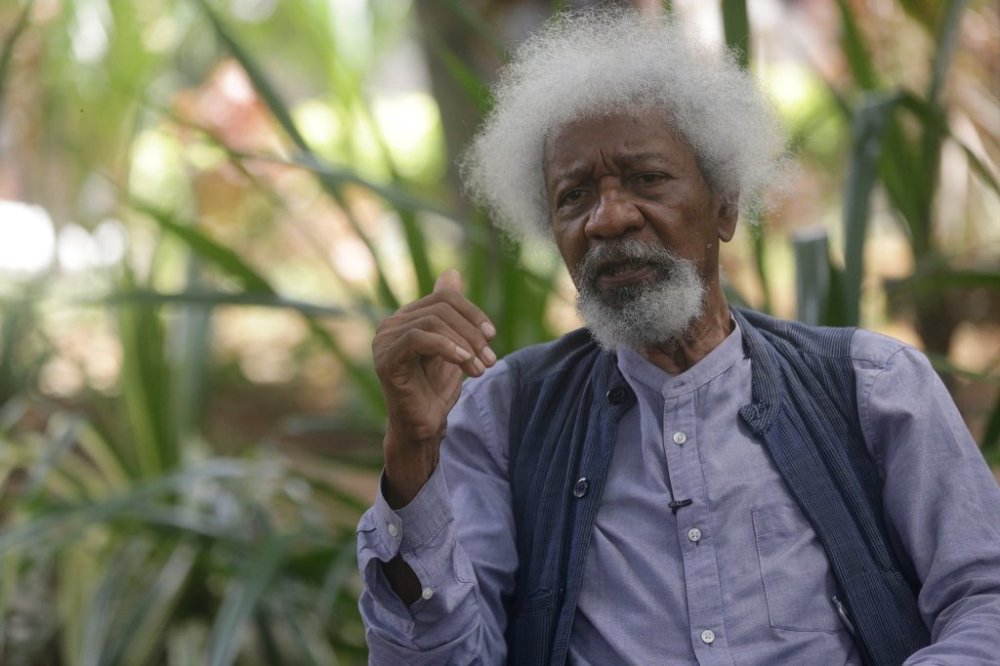Nigeria’s Nobel laureate Wole Soyinka says US visa was revoked after Trump criticism
Advertisement
Read this article for free:
or
Already have an account? Log in here »
To continue reading, please subscribe:
Monthly Digital Subscription
$1 per week for 24 weeks*
- Enjoy unlimited reading on winnipegfreepress.com
- Read the E-Edition, our digital replica newspaper
- Access News Break, our award-winning app
- Play interactive puzzles
*Billed as $4.00 plus GST every four weeks. After 24 weeks, price increases to the regular rate of $19.00 plus GST every four weeks. Offer available to new and qualified returning subscribers only. Cancel any time.
Monthly Digital Subscription
$4.75/week*
- Enjoy unlimited reading on winnipegfreepress.com
- Read the E-Edition, our digital replica newspaper
- Access News Break, our award-winning app
- Play interactive puzzles
*Billed as $19 plus GST every four weeks. Cancel any time.
To continue reading, please subscribe:
Add Free Press access to your Brandon Sun subscription for only an additional
$1 for the first 4 weeks*
*Your next subscription payment will increase by $1.00 and you will be charged $16.99 plus GST for four weeks. After four weeks, your payment will increase to $23.99 plus GST every four weeks.
Read unlimited articles for free today:
or
Already have an account? Log in here »
DAKAR, Senegal (AP) — Nobel Prize-winning author Wole Soyinka said on Tuesday that his non-resident visa to enter the United States had been rejected, adding that he believes it may be because he recently criticized U.S. President Donald Trump.
The Nigerian author, 91, won the Nobel Prize in Literature in 1986, becoming the first African to do so.
Speaking to the press on Tuesday, Soyinka said he believed it had little to do with him and was instead a product of the United States’ immigration policies. He said he was told to reapply if he wished to enter again.

“It’s not about me, I’m not really interested in going back to the United States,” he said. “But a principle is involved. Human beings deserve to be treated decently wherever they are.”
Soyinka, who has taught in the U.S. and previously held a green card, joked on Tuesday that his green card “had an accident” eight years ago and “fell between a pair of scissors.” In 2017, he destroyed his green card in protest over Trump’s first inauguration.
The letter he received informing him of his visa revocation cites “additional information became available after the visa was issued,” as the reason for its revocation, but does not describe what that information was.
Soyinka believes it may be because he recently referred to Trump as a “white version of Idi Amin,” a reference to the dictator who ruled Uganda from 1971 until 1979.
He jokingly referred to his rejection as a “love letter” and said that while he did not blame the officials, he would not be applying for another visa.
“I have no visa. I am banned, obviously, from the United States, and if you want to see me, you know where to find me.”
The U.S. Consulate in Nigeria’s commercial hub, Lagos, directed all questions to the State Department in Washington, D.C. Through a spokesperson, it said that because under US law visa records are generally confidential, they would not discuss the specifics of this case while stressing that “visas are a privilege, not a right” and that “visas may be revoked at any time, at the discretion of the U.S. government, whenever circumstances warrant.”

